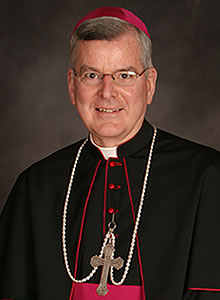
One of the most frequently asked questions that I receive is: “Why do I have to tell my sins to a priest?”
Actually, it is a great question because the answer to it involves the whole reason behind why Jesus established a Church and, therefore, why we are Catholics after all.
You recall the scene in Matthew 16:13-20 when Jesus asks the apostles at Caesarea Philippi what people are saying about him. That episode includes Jesus saying to Simon: “I for my part declare to you, you are ‘Rock’ (“petrus”), and on this rock I will build my church. . .”
In Matthew 18:20, Jesus in discussing prayer with his disciples tells them: “Where two or three are gathered in my name, there I am in their midst.” Notice, he didn’t say that when we are off on a mountainside or sitting beside a tranquil lake or even meditating alone in our room he would be present.
No, Jesus proclaims that the only authentically verifiable place where we can be absolutely certain he is present is: “Where two or three are gathered” in his name.
Establishing his Church
From these and other scriptural texts we can be assured that Jesus intended to establish a Church as his abiding presence in the world. And, to be sure that it was his presence, he breathed on that Church his Holy Spirit the very evening of his resurrection. Again, notice carefully where he places the priority as he imparts the Holy Spirit:
“Receive the Holy Spirit.
If you forgive men’s sins,
they are forgiven them;
if you hold them bound,
they are held bound.”
— John 20:22-23
“Binding and loosing” implies an outsider’s judgment; it requires, therefore, the context of the Church, Jesus’ presence in the world.
Why would forgiveness be the first thing Jesus willed for his Church?
Well, first of all, as we read in the curing of the paralytic in Mark 2:1-12, forgiving sins is reserved to God alone. To say that a human being forgives his own sins or those of another is blasphemy.
Secondly, Jesus’ whole ministry was about forgiveness, about healing, about making people whole again. So, if that was the primary concern for Jesus, it has to be the first priority for his Church.
A priest is ordained to stand “in the person of Jesus Christ, the Church’s Head.” I personally was attracted to the priesthood because I believed it would be the best way I could help others to know God, to resolve their spiritual conflicts and to get to heaven.
I always have thought that the image of Jesus as the “Divine Physician” or “Healer of Souls” provided an incentive for my priestly service. As doctors use medicine to cure physical ills, a priest employs the Holy Spirit to cure spiritual ills.
In the sacrament of confession, the priest is not there to scold or admonish, nor is he there out of curiosity to learn about your “dark side.” No, the priest is there as “Another Christ” to offer comfort, counsel and, above all, forgiveness and healing.
Speaking the words
Thirdly, we have to confess our sins to a priest because, believe it or not, it is good for us. Those who have been successful in Alcoholics Anonymous will tell you that one cannot begin to be cured until one admits out loud to another, “I am an alcoholic.”
There is a real difference between thinking something in our heads and speaking it in words. Once an idea is articulated (i.e. a word spoken in anger) in speech, it takes on a life of its own. Likewise, I may think I am sorry for an evil action, but until I ask for forgiveness in words, I really do not experience the effect of that sorrow. But, once I admit I’ve done wrong, then the admission becomes tangible and it can be absolved.
Also, in admitting I am powerless to overcome my sin, I can turn to ask help from the One (i.e. God) who has the power to evoke a conversion.
Fourth, as Americans, we have been heavily influenced by the Protestant notion of “predestination” that was so heavily emphasized by Luther and Calvin. They taught that, as believers, we fall under the influence of God’s eternal judgment, which already knows who among us will inherit eternal glory and who will receive eternal damnation.
In previous generations, people of faith worried over the “damnation” aspect. Today, most everyone feels he or she is already destined for salvation. Thus, they reason, “What difference does it make what I do or don’t do? I’m ultimately going to heaven, God won’t stop me.”
Sin is relational
What complicates this situation even further is a superficial understanding of “sin” as a violation of a rule or an external law. Sin rather is a failure to live up to my baptismal call to love God above all things and my neighbor as myself.
Sin is hurting someone I love. Sin is relational. So when I wallow in self-pity or indulge in gratifying my senses, when I prefer to go shopping rather than participating in Sunday Mass, when I intentionally ignore the needs of the world’s or my neighborhood’s poor, when I invoke God’s name or his damnation on a colleague in a conflict situation, I sin. That is to say, by this act, I have harmed the baptismal covenant relationship I have with God as well as harmed my relationship with another and upturned my own sense of spiritual well-being.
So, the question, “Why do I have to tell my sins to a priest?” is a great question because its answer explains why we need the Church, why we have to admit our wrongs in words, why we cannot presume we are already saved or damned and why sin is not the same as breaking the speeding limit or running a stop sign.
This sacrament over time has been called penance, reconciliation and confession. But whatever we call it, that encounter is a meeting in time with the Merciful Jesus, the Divine Physician. It offers such a powerful assistance to our spiritual growth, why not use it? Yes, why not indeed!
God bless you!




